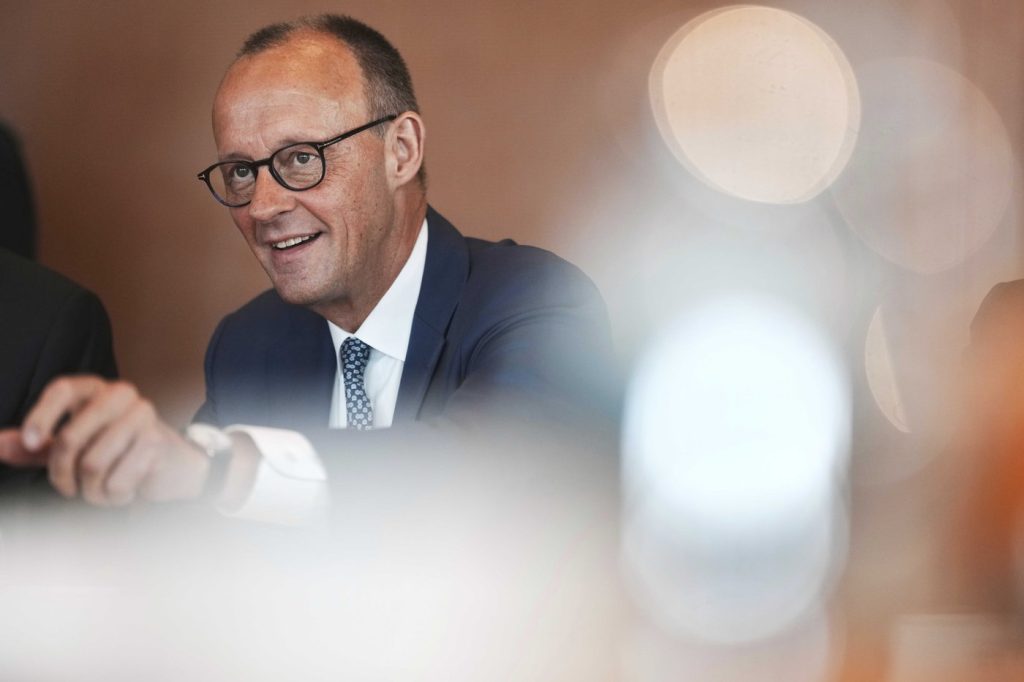On Thursday, German Chancellor Friedrich Merz is set to meet with President Donald Trump in Washington as he aims to secure U.S. support for Ukraine amid rising trade tensions that threaten Europe's largest economy. Their discussions will also focus on increasing Germany's military spending, which has faced criticism in the past.
Since taking office on May 6, Merz has engaged in several phone conversations with Trump, cultivating what German officials describe as a "decent" relationship. This contrasts sharply with the confrontational exchanges Trump had with former Chancellor Angela Merkel.
The 69-year-old Merz, a conservative leader who succeeded Merkel in her party, comes into office with a strong business background, which may resonate with Trump's own interests. A White House official indicated that key issues for discussion will include Germany's defense spending, trade dynamics, the situation in Ukraine, and concerns regarding "democratic backsliding" in Germany, especially in relation to freedoms such as speech.
Merz aims to ensure that his meeting with Trump avoids the confrontations that characterized recent discussions between Trump and leaders like Ukrainian President Volodymyr Zelenskyy. In preparation, Merz's spokesperson, Stefan Kornelius, stated that the Chancellor is "well-prepared" and has a solid rapport with Trump.
In the context of Ukraine, Merz has actively pursued diplomacy, including travels to Kyiv and hosting Zelenskyy in Berlin. He has expressed gratitude for Trump’s support for an unconditional ceasefire, while disavowing any proposals for a "dictated peace" or the subjugation of Ukraine, advocating instead for tougher sanctions against Russia.
Trump is expected to remind Merz of the need to continue direct peace negotiations regarding Ukraine. Following a phone call between the two leaders, Merz emphasized the importance of maintaining unity among Western allies, stating, "it is of paramount importance that the political West not let itself be divided."
To strengthen Germany's military position, which is currently the second largest supporter of military aid to Ukraine after the United States, Merz has pledged to develop long-range missile capabilities for Ukraine. His government is building on efforts initiated by his predecessor, Olaf Scholz, to enhance military funding, particularly following Russia's invasion of Ukraine. However, Trump's past criticisms of Germany's defense spending, including demands for a NATO target of 5% of GDP, loom large over the discussions.
Moreover, both leaders will likely engage in conversations about trade. Merz is focused on revitalizing Germany’s economy, which struggled in the previous two years. He aims for Germany to regain its status as a "locomotive of growth," but Trump's ongoing threats of tariffs create uncertainty. Last year, Germany exported $160 billion worth of goods to the U.S., resulting in a significant trade surplus that Trump seeks to rectify.
Particularly, Trump's imposition of a 25% tariff on automobiles aims to incentivize German car manufacturers to shift production to the U.S., despite many already operating plants there. Merz, however, believes such tariffs "benefit no one and damage everyone," while recognizing that any trade agreements may ultimately rest with the European Union's executive commission.
Recent commentary from U.S. Vice President JD Vance about European democracy has added tension to U.S.-German relations. Vance's criticism regarding the far-right Alternative for Germany party has faced backlash from Merz, who insisted that such remarks from an American official have no place in German discourse.
As Merz and Trump prepare to meet, the outcomes of their discussions will be closely watched, particularly in terms of defense commitments, trade relations, and the geopolitical landscape surrounding Ukraine.










